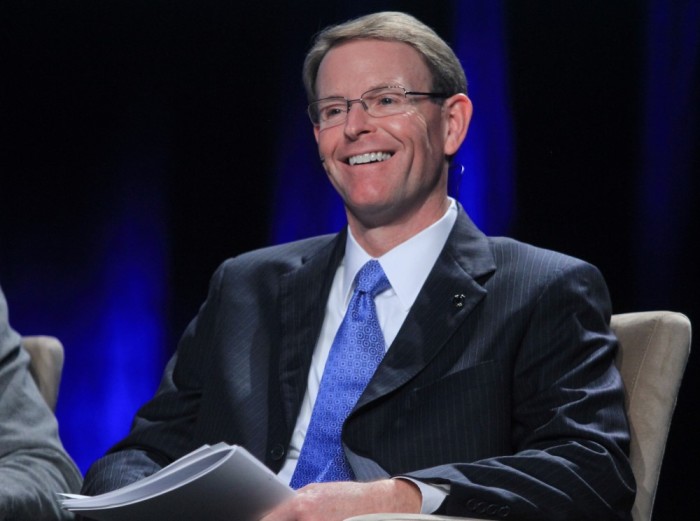FRC President Tony Perkins Calls on Kentucky Lawmakers to Protect Religious Liberty From Supreme Court Activism

Following the jailing of Kentucky clerk Kim Davis for refusing to issue marriage licenses to same-sex couples, Family Research Council President Tony Perkins called on Kentucky lawmakers to accommodate those who adhere to a Christian understanding of marriage.
Perkins also criticized the threat to religious liberties in the wake of the Supreme Court's controversial decision to overturn state bans on same-sex marriage.
"Today we are witnessing what the four dissenting Supreme Court Justices warned of in the Obergefell decision: religious liberty in America is in grave danger," declared Perkins.
"While five justices on the Supreme Court created this dilemma, it is incumbent upon Congress, and in this case legislatures, to ensure orthodox religious beliefs are accommodated. Kentucky Governor Steve Beshear could solve this court-created conflict by immediately calling for a special legislative session and establishing statutory accommodations for clerks like Kim Davis," he added.
Beshear and Attorney General Jack Conway have also been criticized by Republican candidate for governor, Matt Bevin, for not doing enough in the state to protect the rights of religious conscience. Bevin argued that Conway violated his oath of office when he refused to defend marriage laws in Kentucky.
Perkins argued that if Kentucky does not accommodate Davis it could establish a broader religious test for public servants and officeholders.
"Ultimately, this is about more than same-sex marriage licenses in Kentucky. It is about the ability of Christians and other religious people to serve in positions of public trust," declared Perkins.
"If this is not resolved in a manner that accommodates the orthodox religious beliefs of Davis, this will, in effect, establish a reverse religious test barring those who hold biblical views of marriage from positions of public service. Such a religious test by proclamation or practice is wrong."
Perkins called on Beshear to convene a special session of the legislature to "grant an accommodation" for Davis.
"If governors and legislatures thought this threat to religious freedom would go away — the jailing of Kim Davis proves them wrong. The time to protect and accommodate religious liberty is now," concluded Perkins.
Other prominent Christians responded to the controversy over Davis' refusal to issue marriage licenses under her name. Joe Carter, a senior editor at the Acton Institute, criticized the lengths to which the federal judiciary went to overturn the will of the people. Seventy-five percent of Kentucky voters affirmed marriage as the union between a man and woman in 2004.
"The state of Kentucky had two ways to deal with an elected official like Davis: impeachment or accommodation of her religious beliefs," said Carter.
"Either option would have resolved the issue and established a precedent. Instead, a federal court rushed to intervene and brought in men with guns to throw the clerk in jail — and resolved nothing," he added. "Americans need to decide how much longer we're going to allow judges to circumvent the will of the people."
Westminster Theological Seminary professor Carl Trueman noted "government and employers are required to accommodate religious objectors unless such accommodation creates undue hardship for the employer."
"The fact that that point does not appear to have been addressed here is perhaps the most worrying aspect of this. It is, after all, the law of the land as much as gay marriage," he added.




























